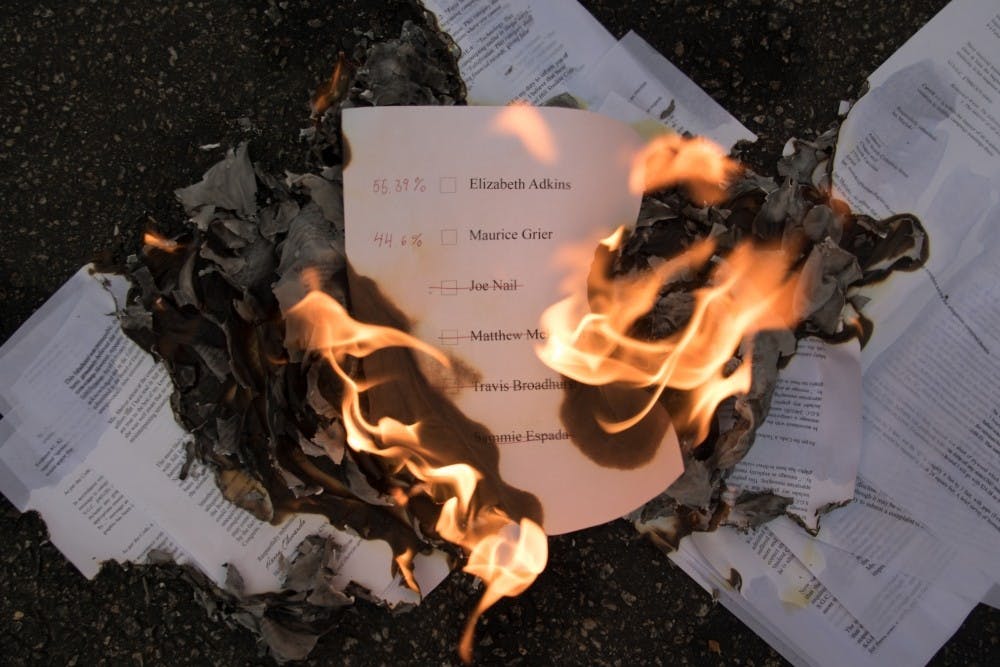“One thing that I remember is they wouldn’t really ever directly answer a question,” Zalaquett said. “I suppose that’s because they weren’t aware of the guidelines themselves.”
Before the meeting on Sept. 28, UNC’s guidelines for election regulations – Title III of the Student Code – had been amended twice by the UNC Undergraduate Senate since the last student body president election, first in April, and later passed by the senate on Sept. 12. It has since been amended once more, passed by the senate on Oct. 30.
The main change in the new legislation was the shift from a 10-point system to a tier system, in which candidates are given warnings before being fully disqualified. The initial spending limit that penalized Musilu and Juarez was not added or edited in the past three codes.
“In the initial meeting, (the BOE) told us, if you go over your spending limit, it would be an automatic 10 points,” Musilu said.
“So, I thought I had seven points to spare,” he said, since the student code dictates the threshold for disqualification to be 17 points.
Within the guidelines, students can be penalized for a financial problem, which is when they spend more money than legally permitted, but they can also receive an automatic disqualification, which according to the guidelines, is when a candidate is disqualified “for exceeding his or her maximum spending limit.”
Musilu said the difference between a financial problem and an automatic disqualification was not made clear.
Arunabha Debnath, chair of the BOE, said that he’s not quite sure why candidates would mix up the two charges.
“Maybe they weren’t listening too well; maybe they just misunderstood what was being said,” Debnath said. “But we were very clear and other candidates knew and recognized the fact that overspending would result in disqualification.”
He added that the BOE also sent the amended code to each candidate after the meeting and informed them they were responsible for knowing it in full.
“They should have been informed, regardless of what was or wasn’t said at the meeting,” Debnath said.
Fixing an ‘antiquated’ system
To get the day's news and headlines in your inbox each morning, sign up for our email newsletters.
In light of the confusion surrounding student disqualifications, both of the student body president candidates who were disqualified from last year’s election agree that something needs to change.
“The rules are very strict,” said Matthew McKnight, one of the former candidates. “It’s something where candidates unintentionally break the rules every single year without meaning to, but we happen to be the ones that got penalized this year.”
Joe Nail, who opposed McKnight in the election, said he offered advice on how to amend Title III last year, but the senate opted to craft the legislation internally.
He hopes they reconsider.
“My suggestion wasn’t to insert myself and opinions, but rather to set up some sort of advisory board of democracy and constitutional experts on campus, who could give some basic guardrails and scaffolding for any desirable election system,” Nail said.
“The last thing I want to see is more instances of people who try hard to establish a compelling vision ... and ultimately have it derailed because they went 13 cents over and had no idea that would disqualify what was otherwise a really admirable campaign,” he said.
@jared_webby
special.projects@dailytarheel.com



